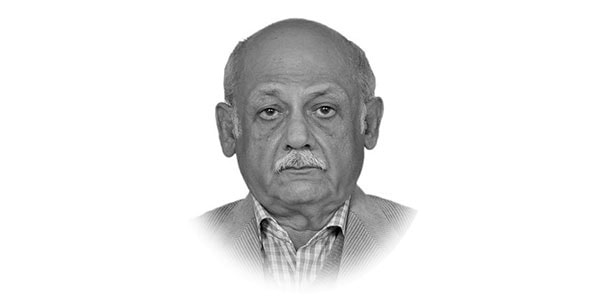Gruesome and tragic history of political assassinations
FORMER Prime Minister and Chairman PTI Imran Khan sustained bullet wounds to his leg after an armed assassination attempt when bullets were fired point blank on his container while he was leading the PTI long march towards Islamabad.
Fortunately he survived this vile attempt but one person was killed and several PTI leaders in the close circle of Imran Khan such as Faisal Jawaid, Imran Ismail, Ahmed Chattha and Imran Yousef received bullet wounds.
This gruesome incident has added fuel to the raging fires of political hatred and volatility in the country. Imran Khan Camp has already named three people who in their opinion are responsible for this failed attempt on the life of Imran Khan.
Such bloody incidents have occurred repeatedly in our short and painful political history during the last seventy five years many leading lights of our political system have paid with their lives.
Heading the list are former Prime Ministers Liaquat Ali Khan, Benazir Bhutto and her brother Murtaza Bhutto.
Gujrati politician Chdry Zahoor Elahi, Punjab Home Minister Shuja Khanzada, Minorities Minister Shahbaz Bhatti, Governor Punjab Salman Taseer, Bashir Ahmed Bilour, Maulana Sami-ul-Haque, Ali Raza Abidi, Sardar Soran Singh and PMLN Minister Ahsan Iqbal also survived an assassination attempt quite recently.
The fledgling state of Pakistan was still in its infancy when on the 16th of October 1951 six shots were fired in the Company Bagh now known as Liaquat Bagh in Rawalpindi.
Liaquat Ali Khan the first elected Prime Minister of Pakistan and a leading light of the freedom movement lay dead on the ground and the very foundations of the fragile democratic structure of the country was damaged irreparably.
That day that will live in infamy in our history, assassinations and killings have happened repeatedly and extinguished the lives of many politicians and national leaders.
PTI Chairman Imran Khan has been the latest victim of the long list of leaders who have faced such assassination attempts.
The history of successful and unsuccessful assassination attempts in the country is long and painful and there appears to be no end in sight, With each passing day the Pakistani society is becoming more polarized, violent and extremist. Political rivals are now treated as enemies and not opponents in politics.
Benazir Bhutto twice elected Prime Minister was brutally murdered by a suicide bomber of the TTP on 27th December 2007 after she had addressed a political rally in Rawalpindi and during her Primer ship her brother Mir Murtaza Bhutto along with six of his deputies was shot dead in Karachi on 20th September 1996. Zahoor Elahi and Justice Maulvi Mushtaq were attacked in Lahore in 1981.
Zahoor Elahi lost his life and Maulvi Mushtaq had a narrow escape. Salman Taseer was gunned down by his own bodyguard in Islamabad. Shahbaz Bhatti was murdered in March 2011 for the sin of speaking out against the draconian blasphemy laws and championing the rights of the religious minorities.
Maulana Sami-ul-Haq, who was known as the “Father of Taliban” for the role his seminary Darul Uloom Haqqania played, was killed at his residence in Rawalpindi in November 2018. MNA Abidi was murdered outside his house on 25th December 2018.
And the story goes on, such cruel and gory happenings have shocked and horrified the nation again and again but it appears that nothing has been learnt from such happenings and these attacks are still an essential part of our political system, our political leaders and our law enforcement agencies have failed miserably to extinguish the flames of hatred and extremist ideas.
“We haven’t learnt any lesson from the past. In fact, the frequency of violent attacks has increased,” Pakistan Institute of Legislative Development and Transparency (PILDAT) President Ahmed Bilal Mehboob said.
He added that there had hardly been any plan chalked out to carry out politics in an organised and civilised manner.
The PILDAT President recalled that the only serious effort to deal with violent and extremist incidents as well as the mindset that led to them was the National Action Plan (NAP), but everyone forgot about it in a year or so after its birth.
“Democracy weakens where violence and extremism prevails,” Mehboob said. He regretted that democracy did not work in societies where political opponents were labelled as traitors.
In all modern democratic societies, political parties and leaders oppose each other tooth and nail.
Politicians all over the world project their point of view and propagate the ideas and manifesto of their own political party but they do not label each other as traitors or enemy agents.
In Pakistan political opponents are now openly called traitors or agents of anti-Pakistan forces. The favorite allegation is agents of America, Israel or India.
The labelling of political opponents suggests the elimination or murder of the opponent and this is what has been happening in the country for a long time now.
The latest despicable act that is the attempt on the life of Imran Khan should be condemned in the strongest possible language but at the same time this deplorable incident should not be used for political gain or for point scoring.
All political parties and their leaders should now adopt a very mild and conciliatory attitude and try their best to extinguish the raging fires of hatred, extremism, intolerance and polarization.
—The writer is Professor of History, based in Islamabad.










